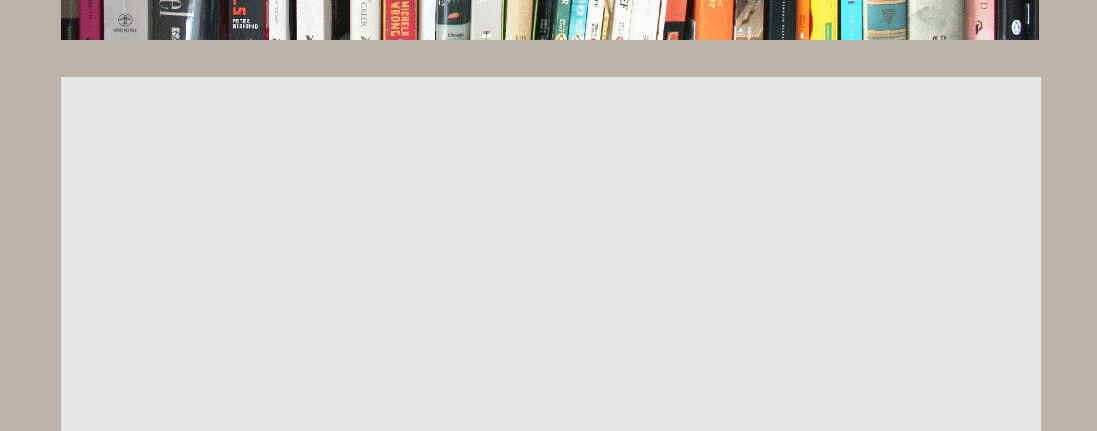 |
||||||||||||
 |
 |
|||||||||||
 |
 |
 |
 |
 |
 |
 |
||||||
 |
||||||||||||
 |
 |
 |
||||||||||
 |
||||||||||||





What was it about?
A series of interleaved stories concerning Robert Mapplethorpe, Walt Whitman, Robert Moses and Edmund White. It is heavily based on historical and visual sources and Bradbury draws her narrative from the history of photography of New York City. Her characters were all important figures with a connection to the city; Walt Whitman was drawn there after the Civil war; Mapplethorpe arrived with Patti Smith in the 1930s when the whole place was on the skids; Robert Moses built parks, roads and railways and shaped the urban landscape of the city from 1922. Edmund White is the only character still alive, and Bradbury imagines him returning to the city as an elderly man feeling lonely and failing to find love.
What did we think of it?
Some struggled with the lack of a narrative, others with the sexual content. The book is all told in the present tense and features layers of stories, biography and autobiography that all builds up to form a bigger picture. We liked the author's neutrality; we are told things about these characters and bear witness to their actions but the author doesn't draw conclusions. Some of us found the writing style offputting (and for one person found it unreadable, with multiple repetition of the words 'he will' being the breaking point). Others enjoyed the way it was so sparse and pared back, with a sense of space that the characters were allowed to fill. A few felt the book had a sense of a writing excercise. There is no ending as such, the book just stops. Perhaps with a creative writing exercise that wouldn't matter because it's about how you get there but most of us expect more from a novel.
As a book club we read Patti Smith's Just Kids and all of us found this derivative, but lacking the beauty, intelligence and sheer originality that made Smith's book so compelling. We also wondered if the evocation of a series of still images, most very well known, was reductive. But we liked the idea of playing on the moment of the photograph and the underlying suggestion that history is our experience of a series of present moments. For the most part Bradbury handled her interweaving of characters and time with flair and expertise.
Periodically Bradbury includes concise summaries of artists' works concerning New York, Nan Goldin's Ballad of Sexual Dependency series, for example: 'These photographs are just a hint of how beautiful everything is.' These are interspersed through the text (although why they start only one third of the way through remains a mystery) and bring additional layers of insight into the complex life of the city. They were an interesting device, but had Bradbury had merely appropriated them by retelling them, rather than doing anything interesting with them? Setting this aside they were a welcome addition to the book mainly because we felt it was a good edit of the way New York has inspired countless aritsts throughout its history.
Some particularly enjoyed Bradbury's ability to describe and bring the city to life while others found the vignettes moving, particularly in the Mapplethorpe story. We felt Bradbury was good at showing the way relationships develop and change over time in the same way that a city is rebuilt and changed – there is always loss as well as gain. Perhaps Bradbury hasn't done anything startling or new but she has brought together characters we were unfamiliar with, for the most part, and woven their stories together in such a way as to make most of us think about the city differently.
Would we recommend it?
Would probably be most appealing to those interested in cityscapes and urban life and also those with an interest in art history and photography. Not one for those who like a good strong narrative or those likely to become impatient with an author's experiments in style.
![]()
![]()
I took a lot from this. I was disappointed by the ending but I felt Bradbury created a strong sense not just of the city but what it means for that city to develop and the people who live within it. I enjoyed the way Bradbury used art to demonstrate that, and I enjoyed the art that she chose. This didn't entertain me, as such, but it did engage me and some sections I thought were really beautiful. It didn't feel like a writing exercise to me!
![]()
![]()
I really didn't like this. I hated the style. I felt Bradbury had read way too much Raymond Carver. I felt it ws pared back to the point where it said nothing. And it read, to me, like a creative writing exercise. I didn't see the point of it. Flat, facile and boring.
![]()
![]()
I really enjoyed this. I like the vision Bradbury gives of New York, how it runs alongside friendships and the roller coaster ride relationships can go on. I enjoyed spending time with these characters. For me the end was abrupt and it did leave me wanting to know more. The cover with the buildings and the girl peeping through the wall perfectly summed up this book for me.
![]()
![]()
I agree with so much of the criticism but for me by the end I thought th book had a real sense of poetry to it. There was some magic to what Bradbury was achieving even though I don't quite know how she did it as I did find the present-tense narration flat and the writing style repetitive. In the end it was greater than the sum of its parts and did conjur a lot of the magic of time and the city. And that's quite a powerful effort.
![]()
![]()
I was inclined to like this. I found the writing style interesting and I liked the way it felt so pared back with a real sense of space. I particularly enjoyed Bradbury's Walt Whitman, perhaps because I didn't know much about him, and I found real poetry in her evocation of him. 'This is like a photograph he has had taken ... . Sometimes he thinks he is still waiting there, waiting for the picture to come to an end, which of course it never does for he is always present in it. This is what he feels as he lies in the grass. The grass grows against him but one day it will grow through him.' I would have wanted to score this more highly but the ending really lt it down for me and I do agree with the others that it often felt derivative. Also the Edmund White storyline left me feeling baffled.

This book club took place at the beginning of August 2016 at Amanda's house where we hoovered up delicious guacamole and vegetarian chilli while discussing Megan Bradbury's debut novel Everyone is Watching. Later Amanda said she was pleased we'd all liked the guacamole so much as she had never made it before! In the news Theresa May has become Prime Minister, appointed a new cabinet and told us all 'Brexit means Brexit' but Parliament is now on summer recess and all has gone eerily quiet.We've taken to worrying about Donald Trump instead.
Also discussed: the wine label shazam ap • Highbury Fields Parkrun • 46-month-old aged Gouda • Kate and Laura's ventures in podcasting